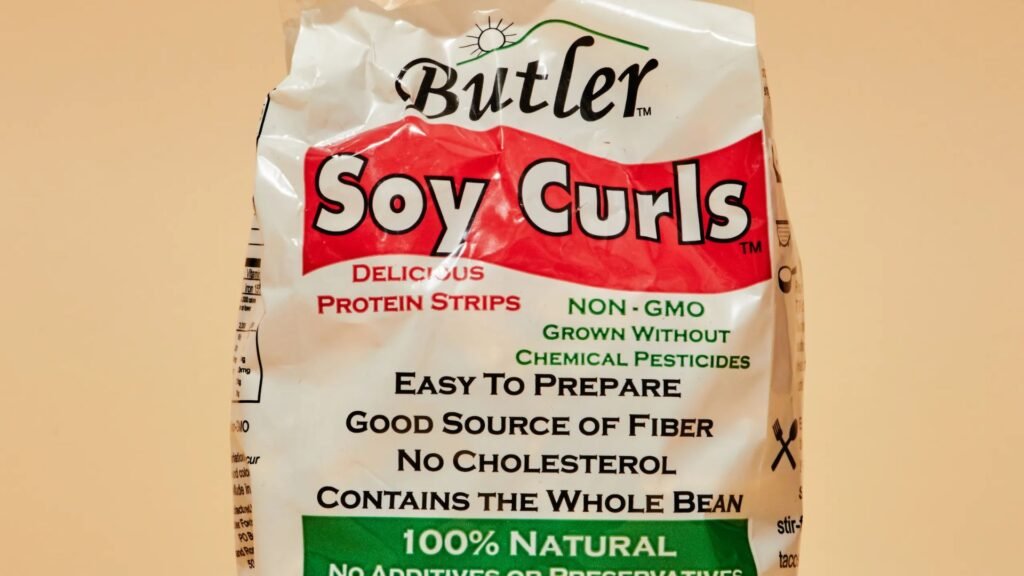With the increasing demand for plant-based alternatives to meat, soy has emerged as a popular and versatile substitute. Whether you’re reducing your meat consumption for health, environmental, or ethical reasons, soy offers a wide range of products that mimic the texture, flavor, and nutritional benefits of animal protein. From tofu and tempeh to soy protein and textured vegetable protein (TVP), soy-based substitutes are not only nutritious but also adaptable to many cuisines and cooking styles. In this article, we’ll explore how soy can effectively replace meat in your diet and why it’s one of the best plant-based alternatives.

Tofu: The Classic Meat Alternative
Tofu, made from soybeans, is one of the most well-known meat substitutes. Its neutral flavor and ability to absorb the taste of any marinade or seasoning make it a fantastic option for replacing meat in numerous dishes. Tofu comes in various textures, from soft to extra-firm, allowing it to be used in a variety of ways.
Why Tofu Works as a Meat Substitute:
- Versatile Texture: Firm tofu can be grilled, sautéed, or even fried to mimic the texture of meats like chicken or pork. Soft tofu works well in soups or smoothies.
- High Protein Content: Tofu is a great source of protein, providing around 10 grams per half-cup serving, which makes it a filling and nutritious substitute for meat.
- Low in Fat and Cholesterol: Unlike animal proteins, tofu is low in saturated fat and contains no cholesterol, making it heart-healthy.
Cooking Tips:
- Stir-fries: Tofu’s absorbent nature allows it to take on the flavors of your stir-fry sauce.
- Grilling or Baking: For a meat-like texture, marinate firm tofu and grill or bake it for a crispy outer layer.
Tempeh: Fermented Soy for Meat-like Texture
Tempeh is another soy-based product that offers a more robust, meaty texture. Made by fermenting cooked soybeans, tempeh has a firm consistency that works wonderfully as a meat alternative. It has a nutty flavor and is packed with protein, making it a great addition to any plant-based diet.
Why Tempeh Works as a Meat Substitute:
- Rich in Protein: Tempeh provides about 21 grams of protein per 4-ounce serving, making it an excellent meat substitute in terms of protein content.
- Firm and Chewy Texture: Its firm texture makes tempeh perfect for grilling, stir-frying, and even using in sandwiches or wraps.
- Fermentation Benefits: The fermentation process makes tempeh easier to digest than other soy products and can support gut health.
Access Gaming on the Go with Mobile Casinos
Take a break from cooking and enjoy some gaming experience wherever you are – click here to explore mobile casino games and enjoy seamless gameplay on your mobile device anytime, anywhere.
Cooking Tips:
- Grilled or Pan-Seared: Slice tempeh thinly and sear it in a hot pan for a crispy exterior and chewy interior.
- Chili or Stews: Crumbled tempeh can replace ground beef in chili or stew recipes for a hearty, protein-packed dish.
Soy Protein: A Meat Substitute in Processed Products
Soy protein isolate is commonly used in processed meat alternatives such as veggie burgers, hot dogs, and sausages. It’s derived from defatted soybeans and is highly concentrated in protein. When combined with other ingredients like spices, soy protein isolates are used to create products that closely resemble the taste and texture of meat.
Why Soy Protein Works as a Meat Substitute:
- High Protein Content: Soy protein isolate can contain up to 90% protein, making it a high-quality protein source.
- Meat-Like Texture: When processed, soy protein can mimic the texture of ground beef, poultry, or other meats in a wide range of products, such as burgers and nuggets.
- Flexible Use: It can be used in a variety of processed foods, including meatless sausages, tacos, and meatballs.
Cooking Tips:
- Veggie Burgers: Combine soy protein with vegetables, grains, and seasonings to make your own homemade veggie burgers.
- Soy-Based Sausages: Use soy protein to create meatless sausages, flavored with herbs and spices to replicate the taste of traditional sausages.
Conclusion
Soy is a powerful, nutritious, and sustainable alternative to meat, offering a wide variety of products that can mimic the taste, texture, and nutritional profile of animal protein. From tofu and tempeh to soy-based sausages and veggie burgers, soy can easily replace meat in nearly any dish. Whether you’re fully committed to a plant-based diet or simply looking to reduce your meat intake, incorporating soy into your meals is an excellent way to enjoy meatless meals without sacrificing flavor or protein.











